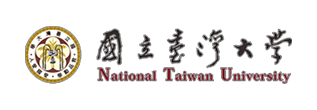African Politics National Taiwan University

Course Overview
Course Description 1. Colonial and Pre-Independence History 2. Choices of Ideology 3. Ethnicity and Identity 4. Social Classes 5. Clientelism and Patrimonialism 6. Military in Politics 7. Africa's International Political Relations 8. Africa's International Economic Relations 9. Political and Economic Governance 10. Democratic Transition, Democratic Consolidation or Democratic Reversal
Learning Achievement
Course Outline 1. To remove misperception and preconceived biased view of Africa; 2. To gain information and knowledge on various political, economic and social problems in Africa; 3. To evaluate the directions of political democratization and economic development on African continent; and 4. To develop analytical ability in assessing political and economic issues of African nations
Competence
Course prerequisites
Course Requirements This course will be taught in English. A student is encouraged to use English in the classroom and required in taking the exams. Even though lecturing will take up most of the course time, a student has to participate in classroom discussion, especially answering the questions provided in the end of each chapter. Preparation for the assigned materials before each class is a prerequisite for meaningful participation. Midterm and final exam each accounts for 35% of the total grade. A country study project accounts for 15% of the grade. Class participation accounts for the remaining 15% of the grade as students will have to answer questions in the class. There is also a map test that requires a student to identify/locate all African countries on the map. A student has to pass the map test before receiving the final grade. He/she can take this test as many times as needed. Objective questions such as matching, true & false, multiple choices, as well as short and long essay questions will be included to accommodate individual student's particular strength in comprehension. The country study project requires each student to collect the following information of one African country (if possible, 2016, or the latest): 1. Name of the Country (both English and Chinese; Chinese Name Used in Both Taiwan and Mainland China) 2. Name of the People (English) 3. Colonial Power(s) 4. Name of the Country during Colonial Time 5. Date of Independence 6. Capital(s) (English and Chinese; Chinese Name Used in both Taiwan and Mainland China) 7. official Language(s) 8. National System (Centralized or Federal, Unit for Lower Level of Government) 9. Political System (Presidential, Parliamentary, Semi-Presidential, Military) 10. Head of State and Head of Government 11. Presidential Terms (including changes since 1990) 12. Military Coups (Frequency and Time of Occurrence) 13. Most Recent and Next Presidential and Parliamentary Elections and the Results of the Former) 14. Corruption Perception Index (Overall Score) (Ranking in the World) (Transparency International) 15. Democracy Index (Overall Score,) (Full Democracy, Flawed Democracy, Hybrid Regime, Authoritarian Regime) (Economist Intelligence Unit) 16. Economic Freedom Index (Overall Score) (Free, Mostly Free, Moderately Free, Mostly Unfree, Repressed) (The Heritage Foundation) 17. Failed States Index (Overall Score) (Ranking in the World) (The Fund for Peace/Foreign Policy) 18. Freedom in the World Index (Political Rights, Civil Liberties) (Free, Partly Free, Not Free) (Freedom House) 18. Gender Inequality Index (Value) (Ranking in the World) 19. Global Competitiveness Index (Ranking in Africa and Ranking in the World) 20. Human Development Index (Overall Score) (Life Expectancy, Literacy Rate, and Purchasing Power Parity) (United Nations) 21. Ibrahim Index of African Governance (Overall Score) (Ranking in Africa) (Mo Ibrahim Foundation) 22. Legatum Prosperity Index (Ranking in Africa and Ranking in the World) 23. Press Freedom Index (Overall Score) (Ranking in the World) (Reporters without Borders) 24. Transformation Index (Value) (Ranking in the World) 25. Time to Establish or/and Break off Diplomatic Relations with People's Republic of China and Republic of China
Grading Philosophy
Course schedule
Course type
Online Course Requirement
Instructor
Chen-Shen Yen
Other information
Site for Inquiry
Please inquire about the courses at the address below.
Email address: http://politics.ntu.edu.tw/english/


